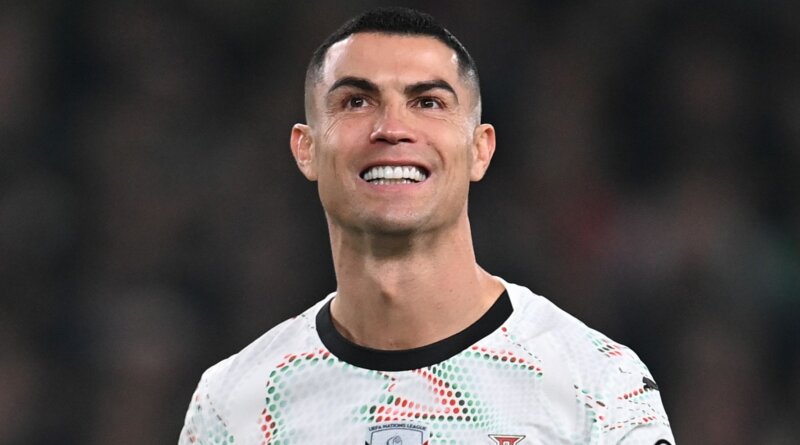Ronaldo Red Card Ban Sparks FIFA Fairness Debate
Cristiano Ronaldo Red Card Ban and FIFA’s Controversial Decision
Cristiano Ronaldo red card ban has ignited intense debate after FIFA handed the Portugal captain a one-match suspension, with a further two games suspended, following his red card against the Republic of Ireland. This decision, widely perceived as lenient, has been met with widespread outcry from fans and pundits who accuse FIFA of inconsistency and bending the rules for one of football’s biggest names.
Why Ronaldo’s Red Card Ban Has Caused an Uproar
The incident unfolded during a heated World Cup qualifier in Dublin. With Portugal trailing, Ronaldo received the first red card of his international career after elbowing Dara O’Shea off the ball—a clear act of violent conduct spotted by VAR and upgraded from a yellow. Disciplinary precedent suggested Ronaldo would miss multiple matches, likely impacting Portugal’s World Cup opening fixtures. Instead, FIFA’s disciplinary committee opted for a lighter punishment: a one-game ban (already served), plus a suspended two-game penalty valid for the next year.
FIFA Accused of Double Standards
The ruling triggered a storm across social media, with football fans accusing FIFA of favoritism and prioritizing commercial interests over fair play. Many pointed out that lesser-known players have faced harsher penalties for similar offenses. One user remarked, “Makes a mockery of the game,” while another criticized, “If this was a Scottish player, he’d be banned for all three games.” Such comments reflect a growing discontent with perceived inconsistencies in football governance.
Was Ronaldo’s Punishment Justified?
Ronaldo’s previously spotless international disciplinary record reportedly influenced FIFA’s decision. However, the severity of the incident—an off-the-ball elbow with no attempt to play the ball—left many unconvinced. Critics argue that high-profile players should not be granted leniency due to their status or commercial appeal; instead, disciplinary measures should be applied equally, regardless of reputation.
Portugal’s World Cup Campaign Unaffected
With the Cristiano Ronaldo red card ban effectively behind him, Portugal can now prepare for the 2026 World Cup knowing their captain is available for the opener. Coach Roberto Martínez is expected to restore Ronaldo to the starting lineup, though the looming threat of a suspended ban will put the superstar under added scrutiny. For Portugal, the hope will be that Ronaldo channels his competitiveness positively to avoid future incidents that could trigger a longer suspension.
Fan Reactions: Outrage and Sarcasm
The backlash has not been limited to official statements. On platforms like X (formerly Twitter), fans packed threads with outrage and sarcastic commentary. One user claimed, “Bending the rules just so he can play in the World Cup is shocking. He assaulted another player and should be punished accordingly.” Another added, “FIFA know Ronaldo generates money. Him not playing loses them money.” Some even joked that Portugal are better off without him, humorously suggesting his absence helps the team.
Consistency and Transparency: Ongoing Concerns
This episode has reignited long-standing questions about the consistency and transparency of FIFA’s disciplinary processes. Fans and analysts alike demand clearer guidelines and application of rules, irrespective of a player’s fame or financial impact on the tournament. The perception that rules are flexible for football’s elite risks eroding trust in the game’s governance.
The Broader Implications for Football
The controversy surrounding the Cristiano Ronaldo red card ban is not just about one player or one match. It highlights deeper issues of fairness, integrity, and the influence of commercial considerations within the sport. As global audiences tune in for the World Cup, the expectation remains that football’s governing bodies uphold the same standards for every participant, ensuring the game’s credibility.
Opinion: Fairness Must Prevail in Football Governance
While Ronaldo’s clean record and stature may have influenced FIFA’s decision, such leniency undermines the principle of equal treatment. Football’s appeal rests on its unpredictability and sense of justice—qualities that must be protected even when icons like Ronaldo are involved. If the sport’s authorities are to maintain their legitimacy, they must enforce rules with consistency and transparency, regardless of the player’s profile. For more news and updates on football controversies and tournaments, visit for more news.
Your global gateway to nonstop football coverage:
News Goal
Share this content:
